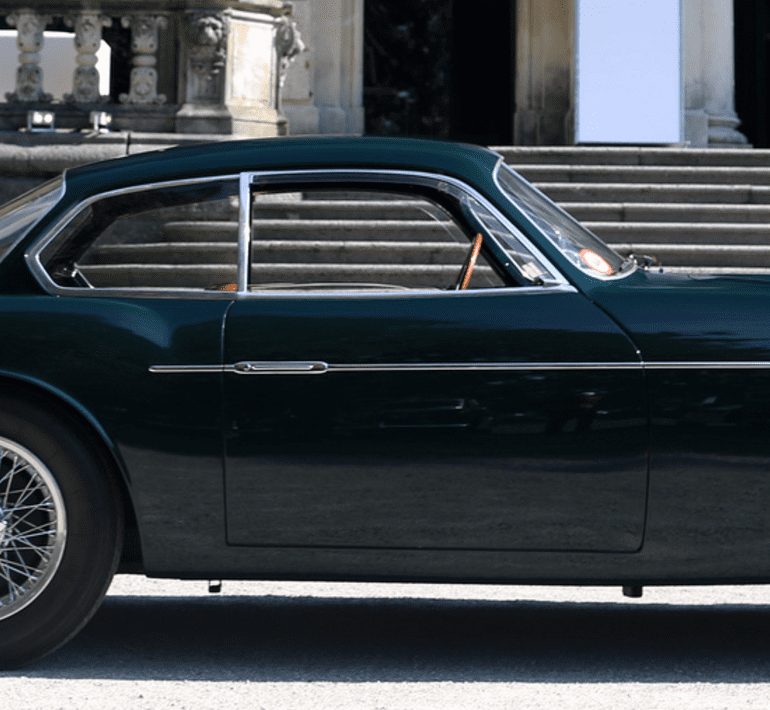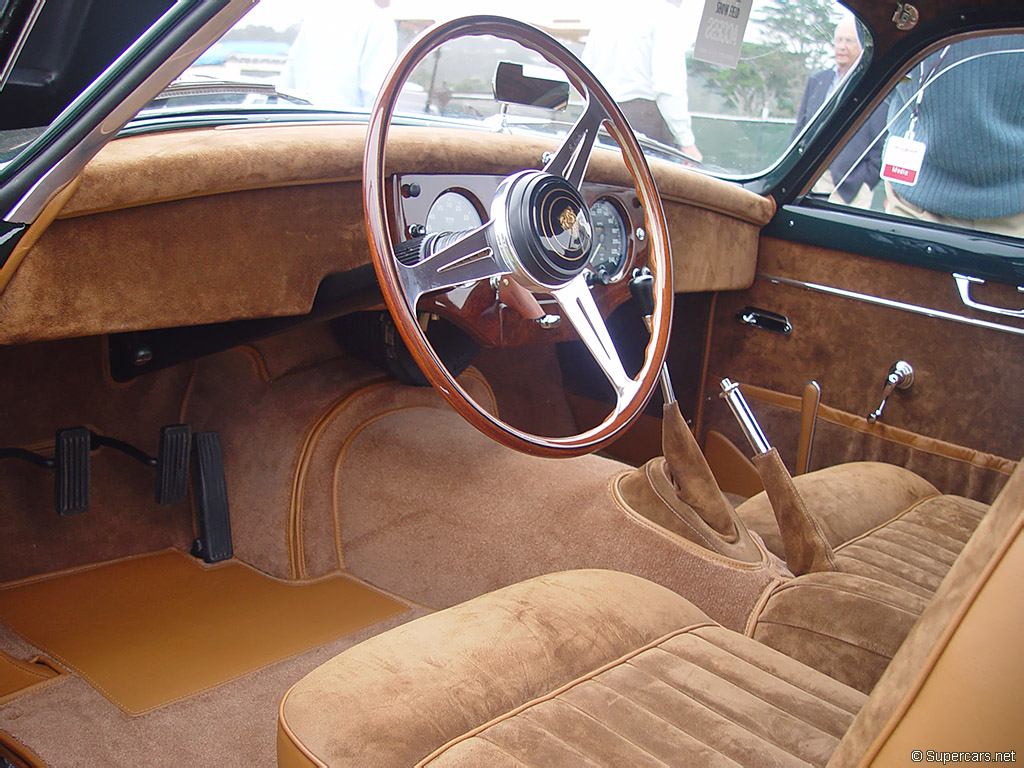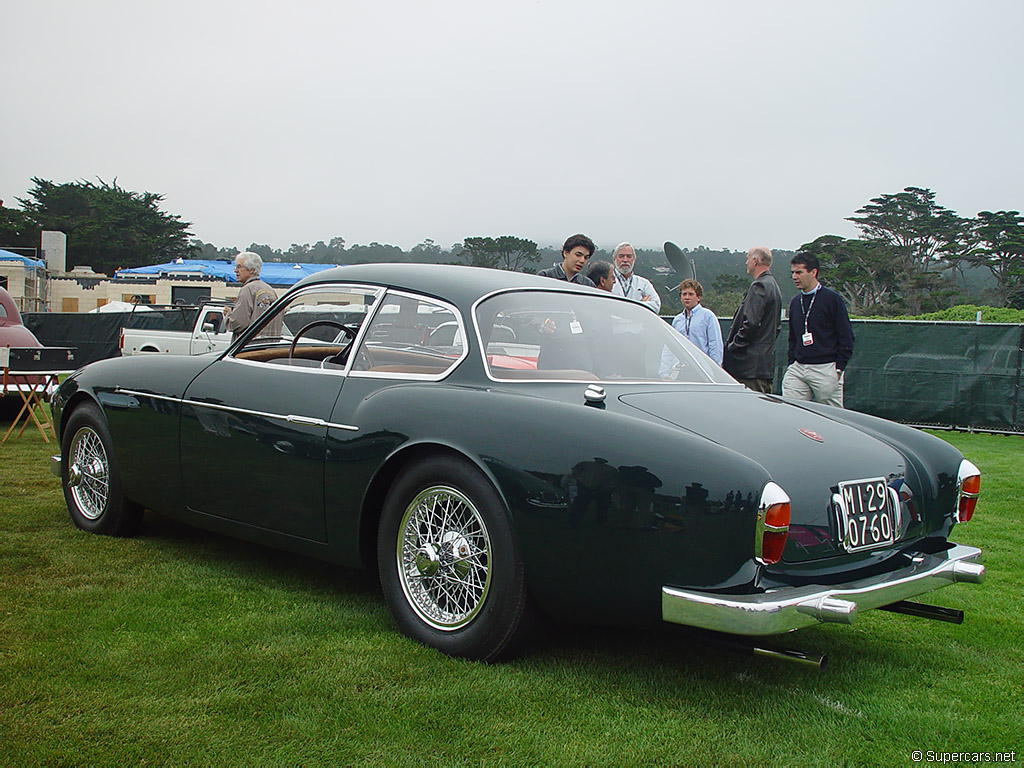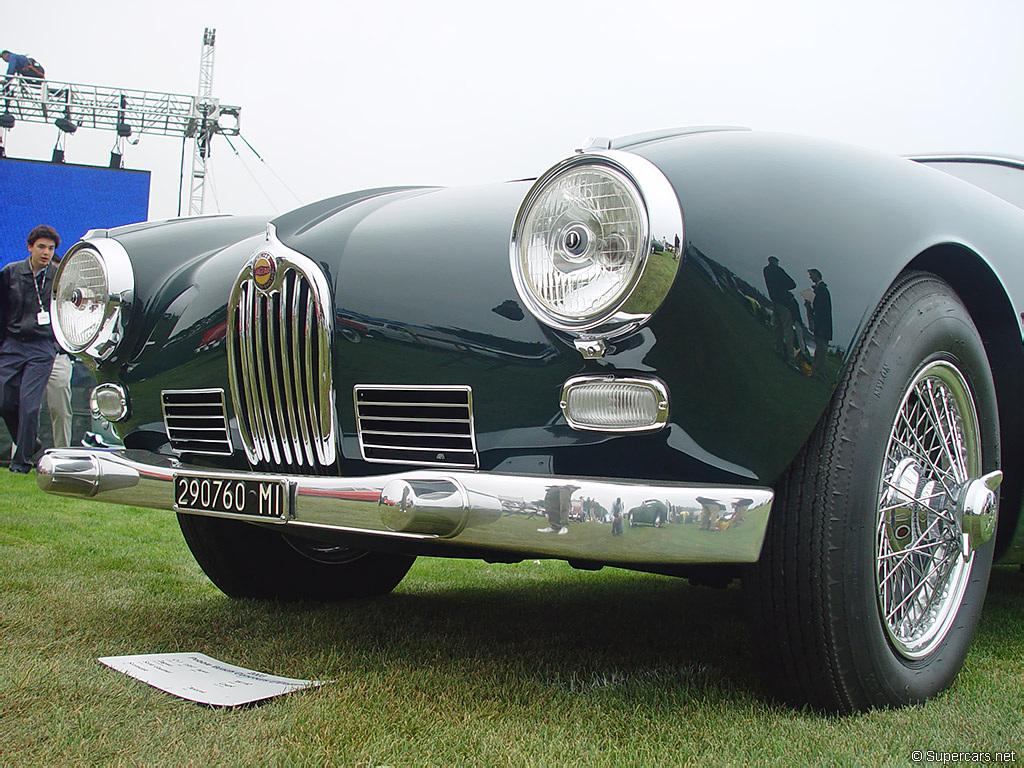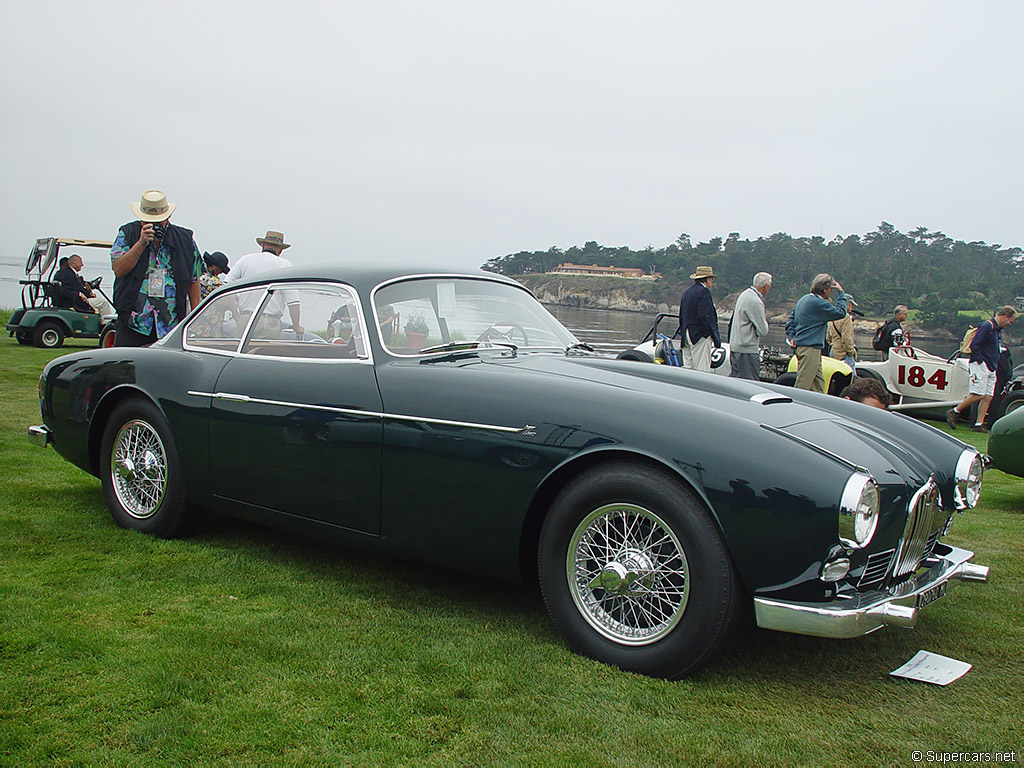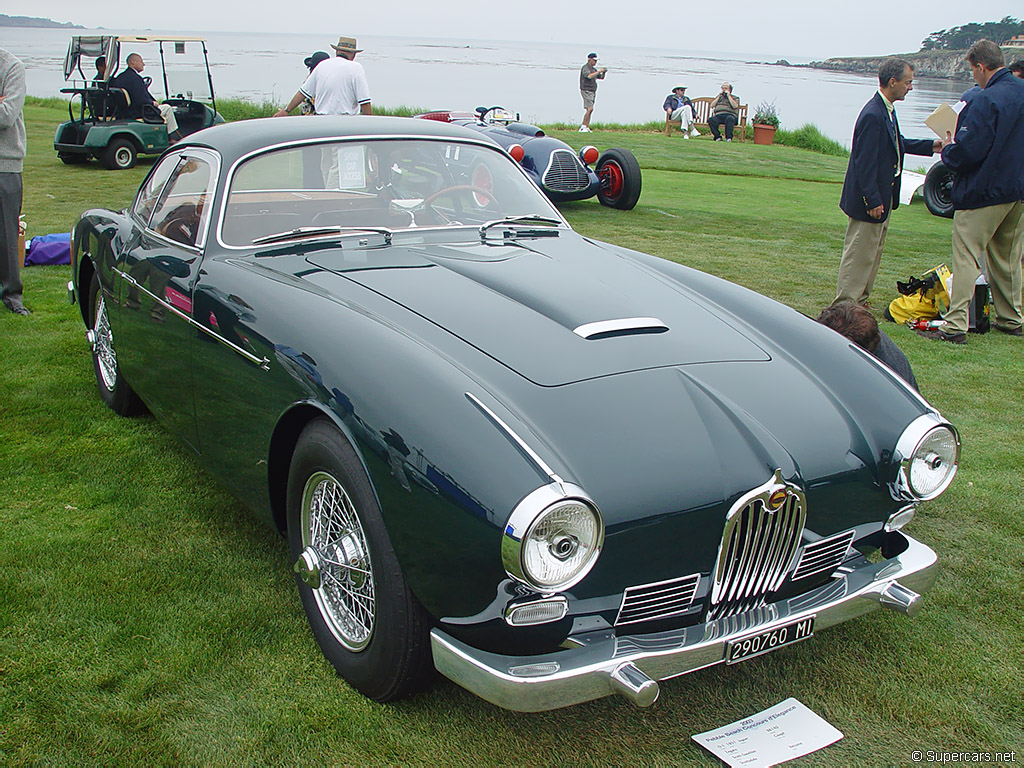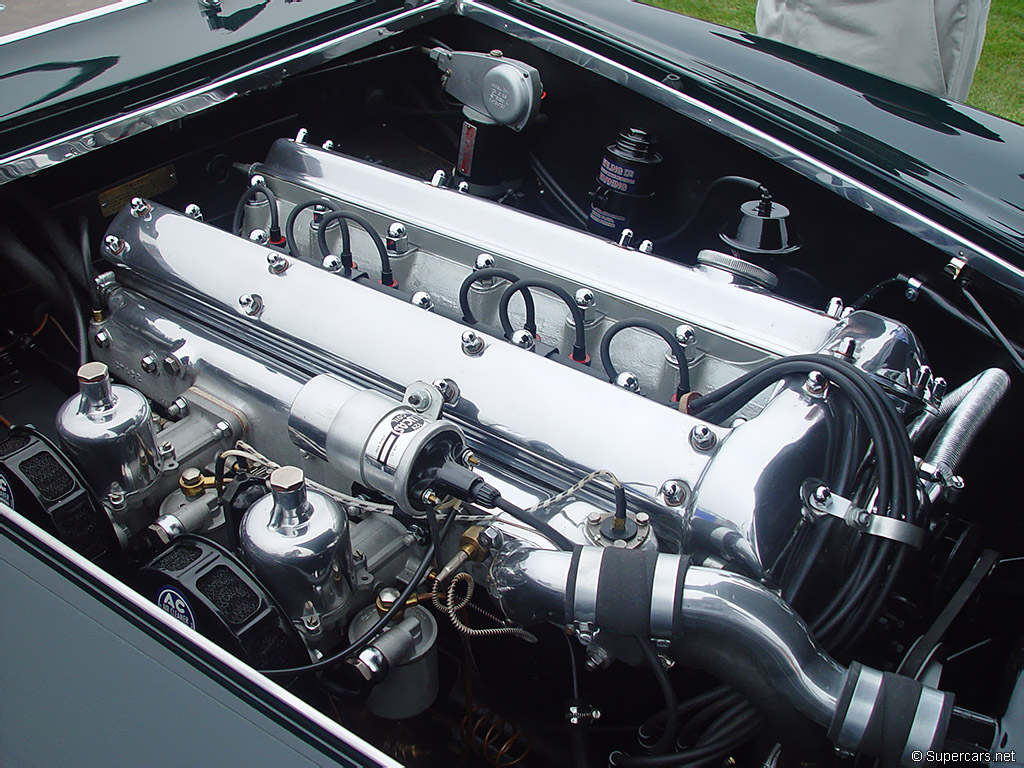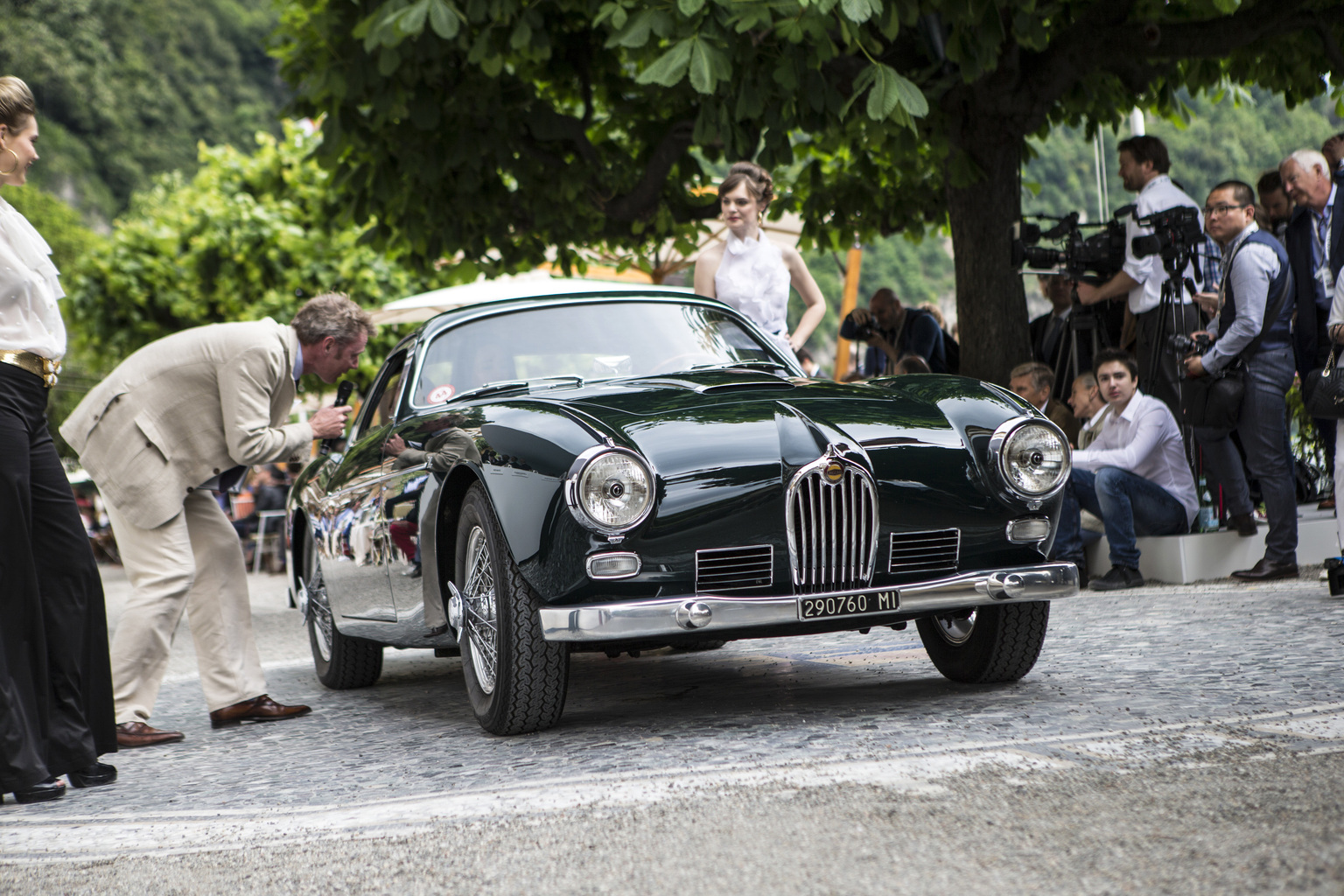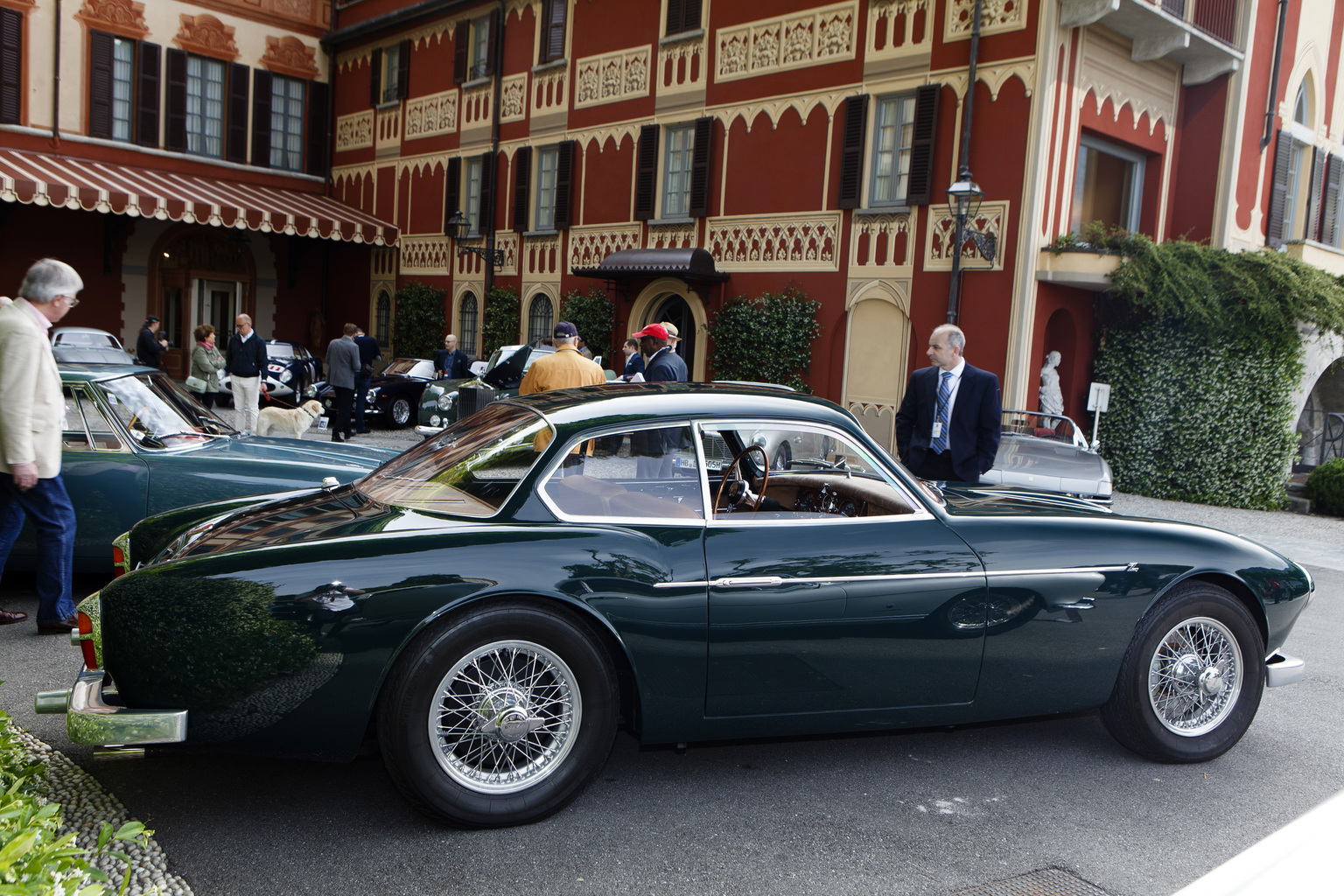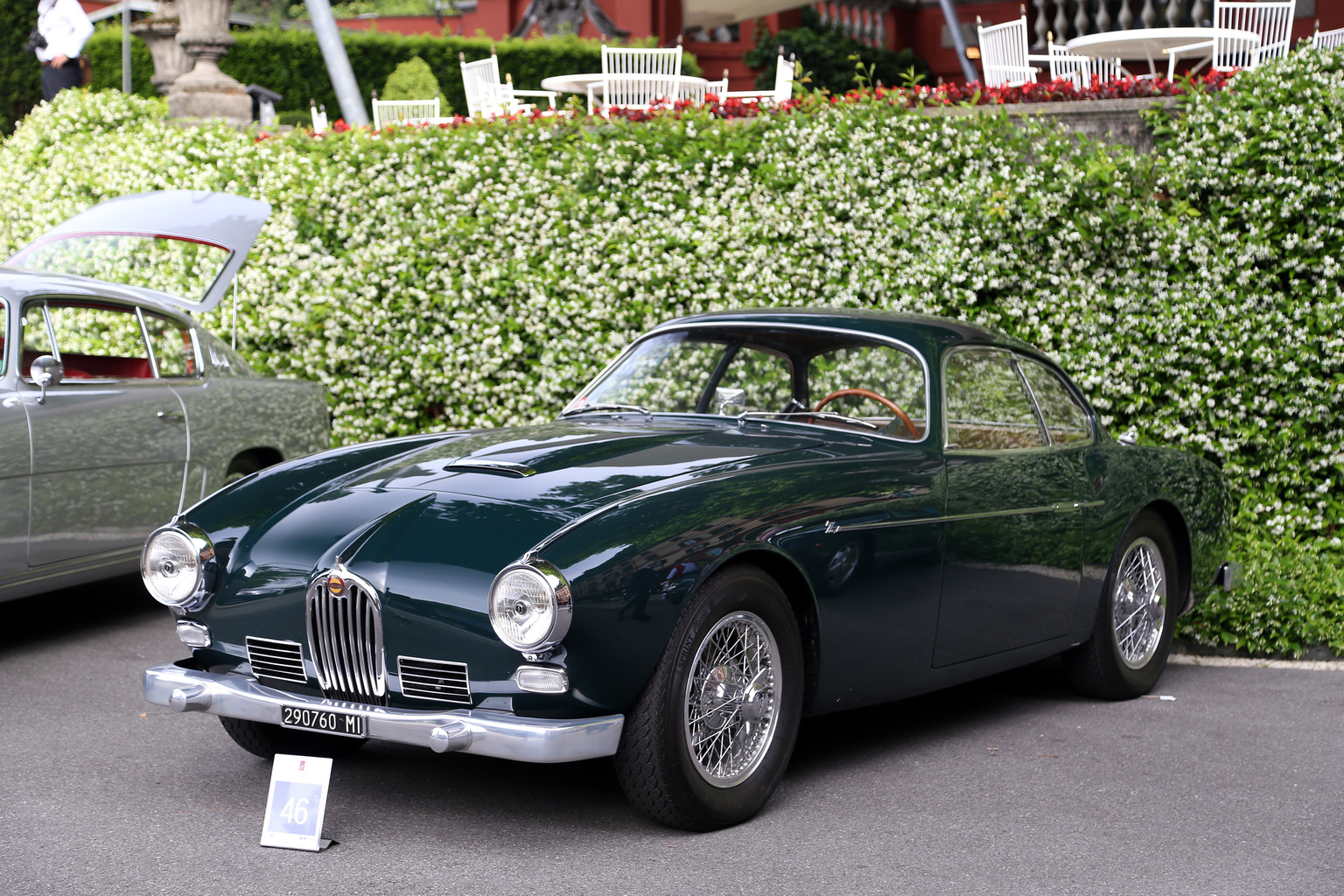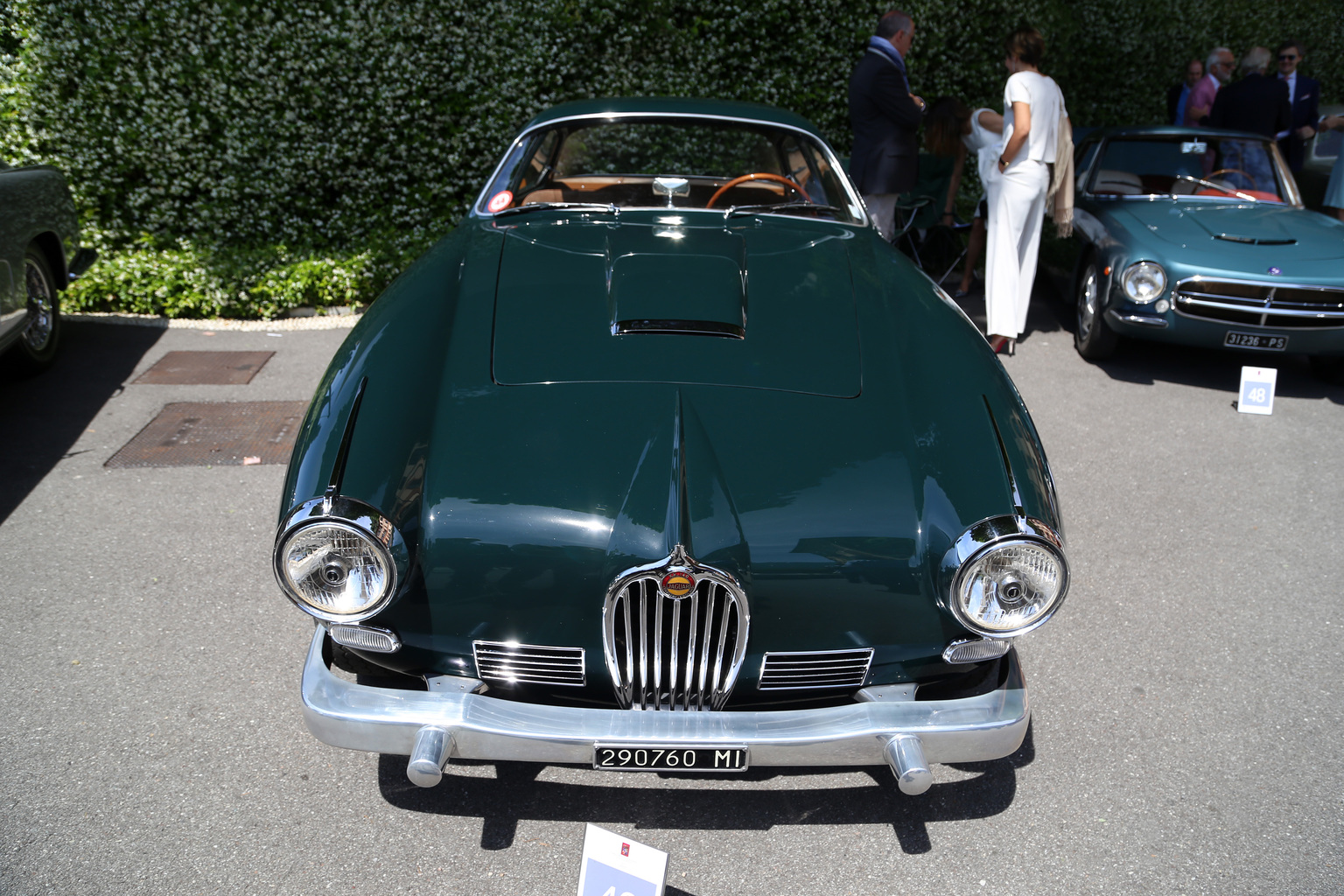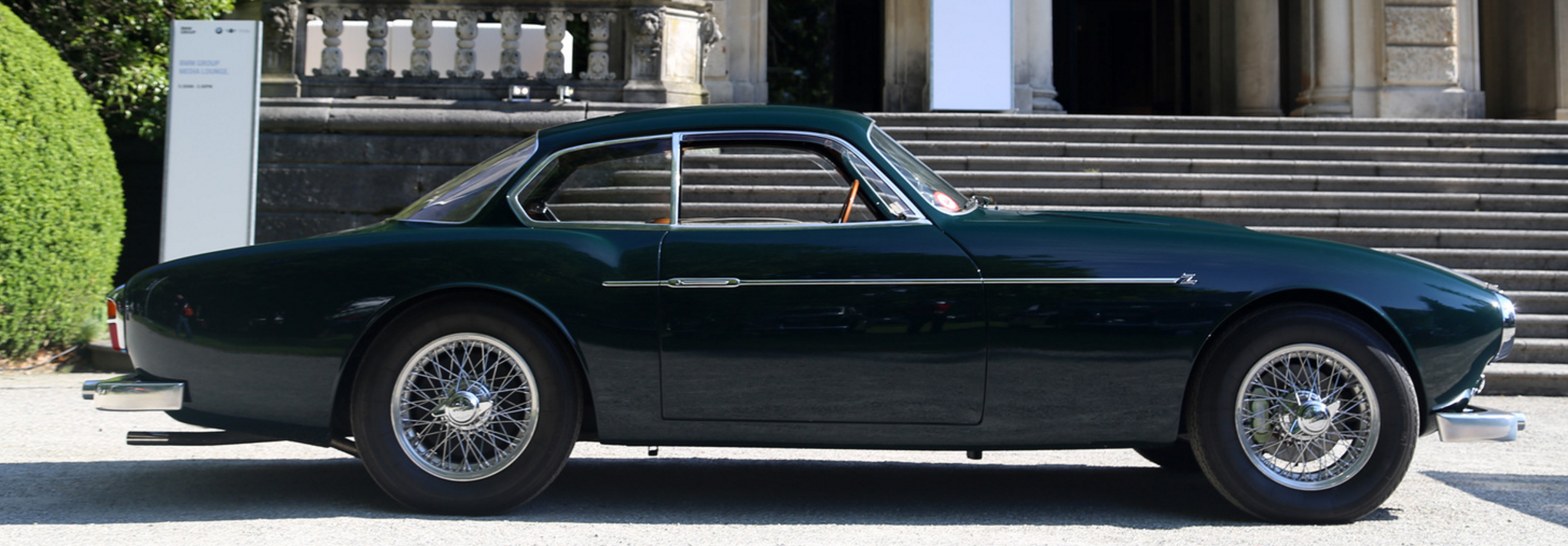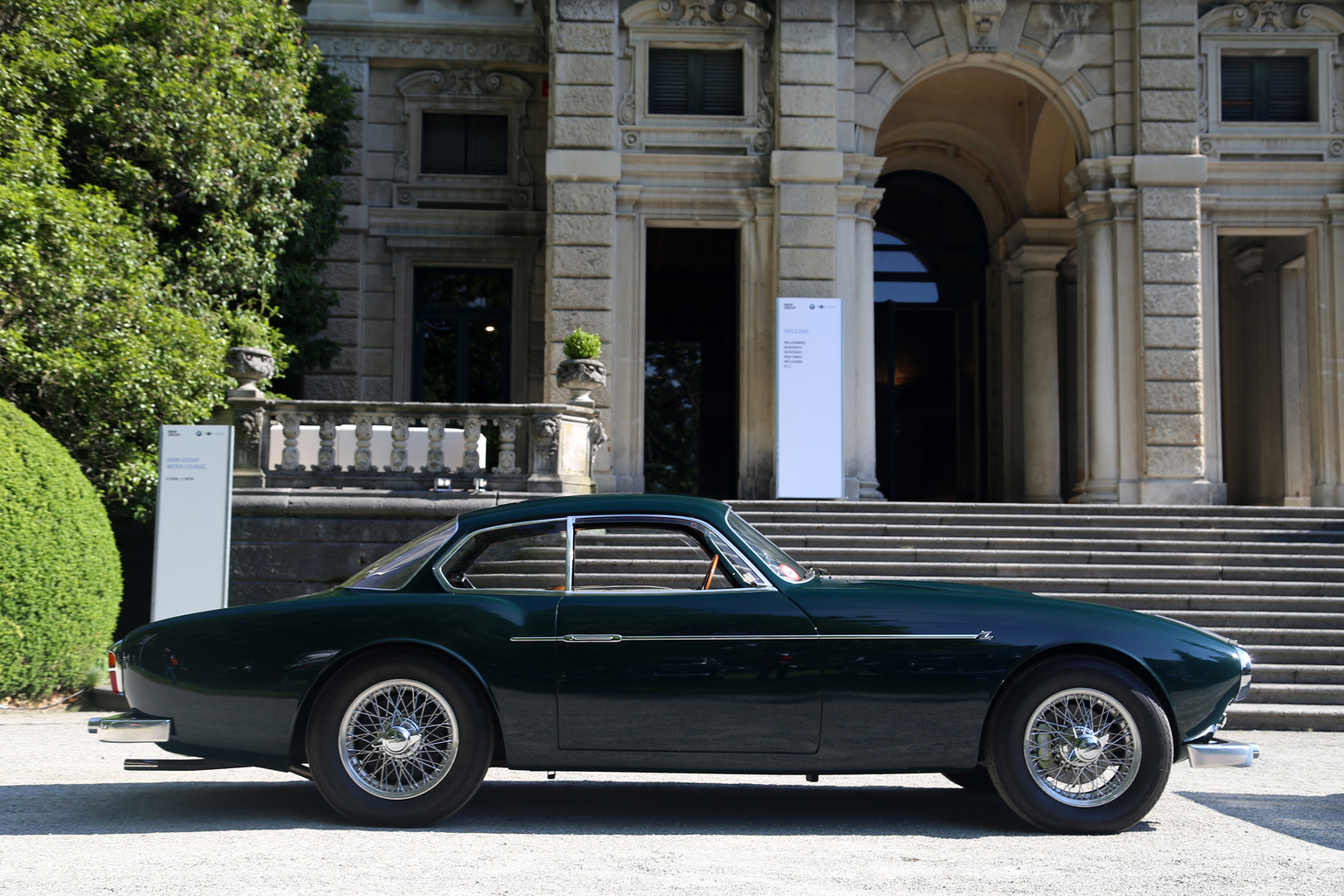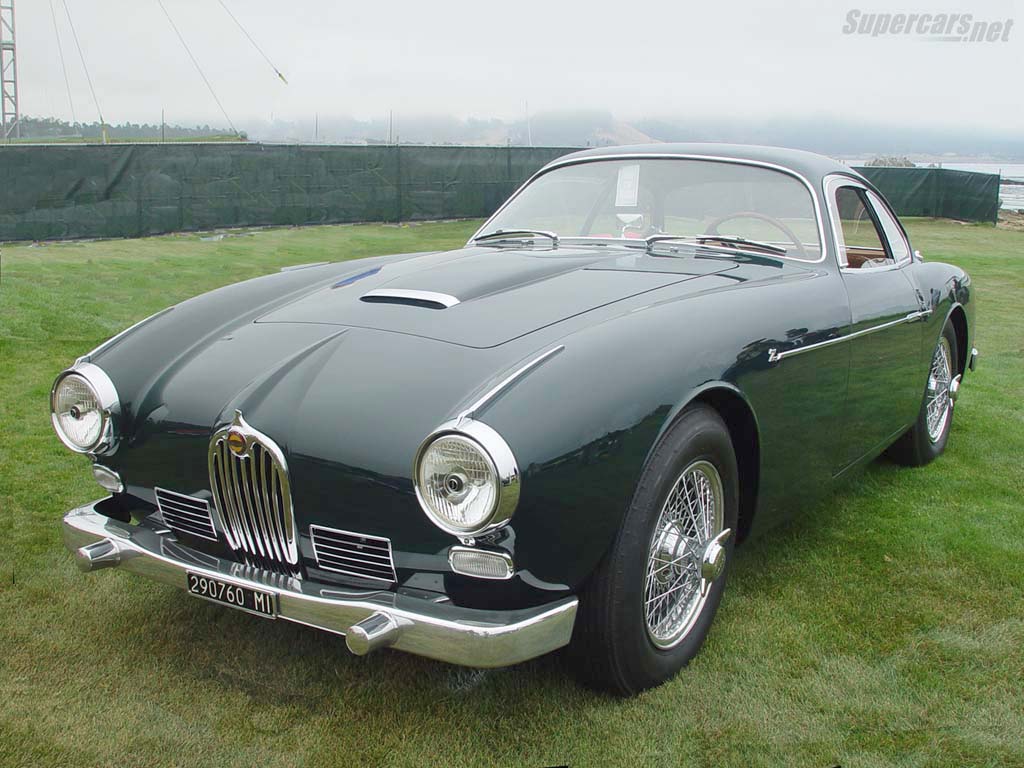1954 Jaguar XK140 Zagato Coupé
During the post-war period, Jaguar, and its founder, William Lyons, wanted to add more prestige to the company. Begining with the development of the XK engine, a trend towards manufacturing more exciting sports cars would fulfill these desires and the XK series would launch Jaguar into it’s best years.
Jaguar’s XK engine was made independent from Standard’s engine tooling, and was their first bottom-up design. It’s potential was first realized by the public in a concept car which would give Jaguar its greatest promotion. As launched, The XK120 roadster stole the London Motor Show with it’s sweeping body, 160 horsepower XK engine and 120 mph top speed for which it was named. Eventually the XK120 had to be put into production, and became Jaguar’s leading product.
However, the XK legacy didn’t end with XK120 roadster. Later competition cars with XK engines won Le Mans outright in 1953, 55, 56 and 57. Throughout this victorious period, Jaguar upgraded the XK120 to XK140 specification, including more powerful engines and larger interior spaces. This culminated with the XK150, which reached 265 bhp in top form.
Jaguar, Italian Style.
Of all the XK-powered Jaguars, very few received custom coachwork, and even less were bodied in Italy. However, Italian dealer Guido Modiano commissioned Zagato to rebody one of his bent XK140s. During the build, Zagato was ordered to build the car to high standards which was reflected by it’s fully suede interior. Even in the Ferrari 250 Zagatos, from which this Jaguar lends some traits, suede was never ordered.
Zagato’s final form was so striking, Modiano decided to showcase his ‘XKZ’ at the 1957 Paris Auto Salon. Afterwards a brochure was made up for Zagato XK150 conversions of which one car was completed and shown at the 1958 Geneva Auto Show. Unfortunately, the second car marked the end of the project, and within the coming years both Anglo-Italian Jags were lost, one never to return.
Decades later Scott Gauthier, found and bought the once lost ZK140 Zagato from a service garage in Florida. He says it was mostly complete, but in boxes which included the suede upholstery. Restoration commenced in Italy and was completed in time for the 2003 Pebble Beach Concours. Gauthier took second in class, and has since enjoyed driving the car many miles, albeit without the original aluminum bumpers.
In Detail
| engine | XK Inline-6 |
| position | Front Longitudinal |
| aspiration | Natural |
| valvetrain | DOHC |
| fuel feed | Twin SU H6 1 3/4 inch |
| displacement | 3442 cc / 210.0 in³ |
| bore | 83 mm / 3.27 in |
| stroke | 106 mm / 4.17 in |
| compression | 8.0:1 |
| power | 141.7 kw / 190 bhp @ 5500 rpm |
| specific output | 55.2 bhp per litre |
| bhp/weight | 137.38 bhp per tonne |
| body / frame | Aluminum Body over Steel Frame |
| driven wheels | RWD |
| front tires | 6.0-16 |
| rear tires | 6.0-16 |
| front brakes | Drums |
| f brake size | mm / in |
| rear brakes | Drums |
| r brake size | mm / in |
| steering | Rack & Pinion |
| f suspension | Double Wishbones w/Coil Springs, Anti-Roll Bar |
| r suspension | Live-Axle w/Semi-Elliptic Leaf Springs, Telescopic Dampers |
| wheelbase | 2591 mm / 102.0 in |
| front track | 1295 mm / 51 in |
| rear track | 1283 mm / 50.5 in |
| transmission | 4-Speed Manual |
| gear ratios | 3.38:1, 1.98:1, 1.37:1, 1.00:1, :1 |
| top speed | ~201.2 kph / 125.0 mph |


